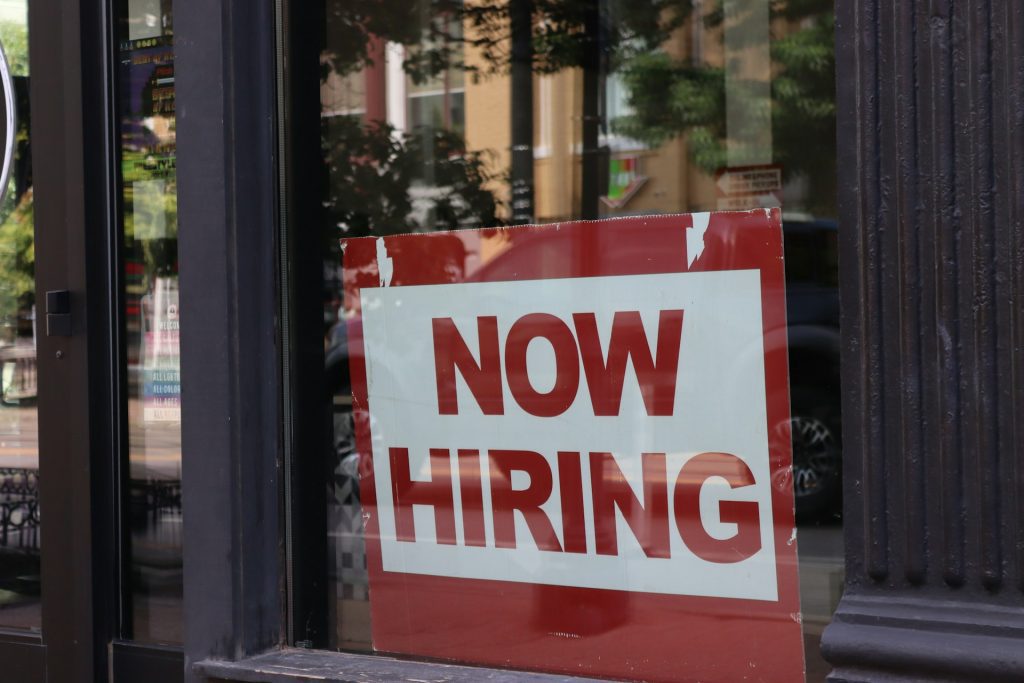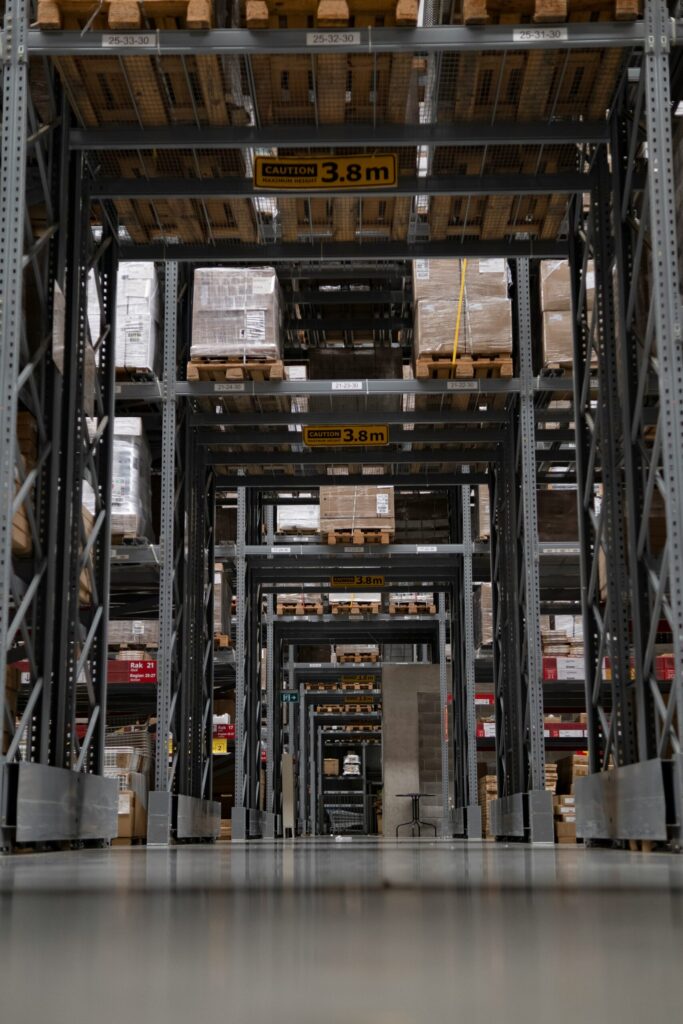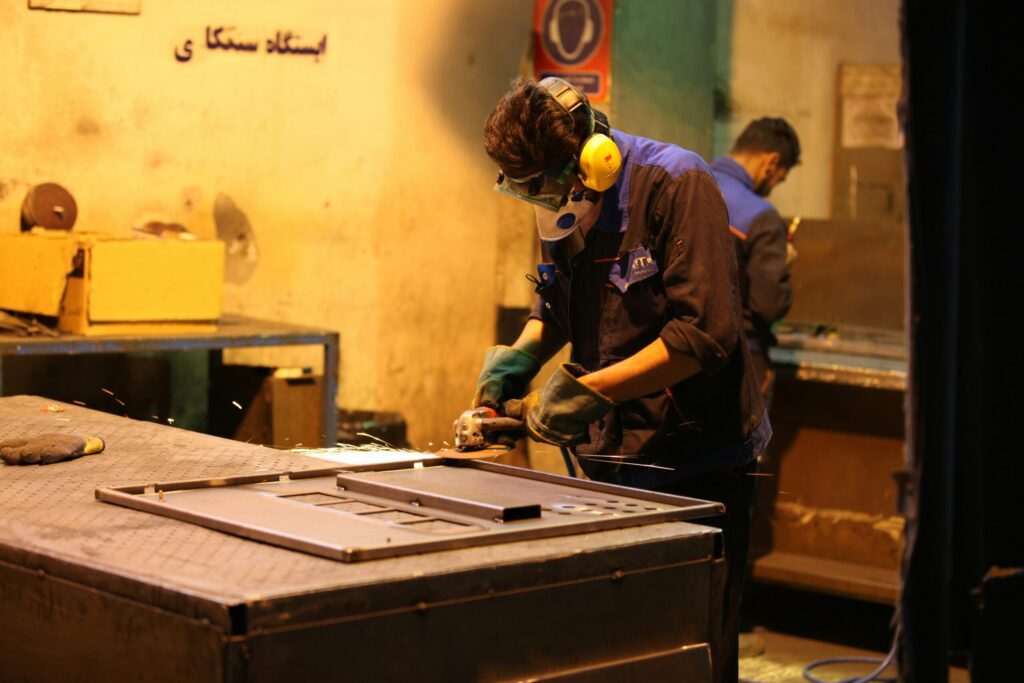 Hobby Lobby jobs employ tens of thousands of people across 900+ arts-and-crafts stores, distribution centers, and its Oklahoma City headquarters. If you’re considering applying, this guide covers the roles, pay ranges, benefits, hiring requirements, how to actually get hired, and realistic paths into leadership or corporate positions.
Hobby Lobby jobs employ tens of thousands of people across 900+ arts-and-crafts stores, distribution centers, and its Oklahoma City headquarters. If you’re considering applying, this guide covers the roles, pay ranges, benefits, hiring requirements, how to actually get hired, and realistic paths into leadership or corporate positions.
Here’s the quick take: Full-time store roles advertise starting wages above typical retail. Stores are closed on Sundays—and yes, that’s every single Sunday, no exceptions. The company hires broadly for retail associates, custom framers, stockers, front-end leads, and managers, plus distribution center and corporate roles.
But let me be clear about something upfront: Hobby Lobby is a privately held, faith-based company. The Sunday closures reflect that. Some people love having guaranteed Sundays off. Others find the company culture too conservative for their taste. Know what you’re walking into.
Read Also: Scrum Master Jobs in the USA (2025 Guide)
Where can you actually work?
Retail stores (900+ locations nationwide)
Retail Associate (multi-department): You’ll do a bit of everything—cashiering, recovering (tidying shelves and putting products back where they belong), stocking, and helping customers find things. You’ll move between departments: Art, Crafts, Fabric, Floral, Hobbies, Seasonal, and Home Décor. If you like variety in your day, this works. If you prefer doing one thing repeatedly, it might drive you crazy.
Custom Framer: This is the specialized role. You’re designing and assembling custom framing orders for customers who bring in art, photos, diplomas, jerseys—you name it. Heavy customer interaction. You need precision, a good eye for design, and patience when someone changes their mind three times about mat colors. It’s part sales, part craftsmanship.
Stocker / Freight Team: Early-morning or overnight shifts. You’re unloading trucks, stocking shelves, building endcaps, handling seasonal resets. Physical work. Fast-paced when trucks arrive. If you’re a night owl or an early bird who likes seeing tangible results (empty truck, full shelves), this could be your spot.
Department Head / Key Carrier / Co-Manager / Store Manager: Leadership roles. You’re managing teams, handling scheduling, executing freight plans and planograms (the layouts that dictate where every product goes), controlling shrink (theft and damage), and making sure customers have a good experience. More responsibility, better pay, more stress.
Read Also: How to Prepare For Job Interview When Changing Careers in US
Distribution and manufacturing (select metro areas)
Warehouse Associate / Order Puller / Forklift Operator: Inbound receiving, picking orders, packing, palletizing, shipping. If you’re PIT-certified (powered industrial truck—forklifts, reach trucks, order pickers), you’re more valuable and you’ll earn more.
Maintenance Technician (material handling equipment and conveyors): You’re keeping the warehouse running. Fixing conveyors, maintaining equipment. Night shifts are common because you can’t fix things while they’re in use during peak operations.
Quality Control / Inventory Control: Cycle counts, audits, slotting (figuring out where products should live in the warehouse for maximum efficiency). Detail-oriented work that feeds into analyst roles if you want to move up.
Corporate (Oklahoma City headquarters)
Merchandising, Imports and Customs, Transportation and Logistics, HR, IT, Finance, Real Estate and Construction, Legal, Creative and Product Development. These are salaried professional roles. Most require specific experience or degrees. But people do move from stores or distribution centers into corporate—it’s not impossible, just competitive.
Read Also: Workers’ Compensation Attorneys in the USA
Hobby Lobby Pay and schedules (what you’ll actually make)
Retail store roles at Hobby Lobby
Full-time starting pay: Hobby Lobby has publicly advertised starting wages for full-time store roles that sit above typical retail. The exact number varies by city and role (front-end cashier vs. custom framer vs. freight team). We’re talking $15–$18/hour in many markets as a starting point, sometimes higher in expensive metros. That’s genuinely better than a lot of competitors.
Part-time and seasonal: Typically a tier below full-time hourly rates. Many stores ramp up hours during holiday seasons and major seasonal resets (think back-to-school, Halloween, Christmas). If you’re part-time, your hours might fluctuate based on store traffic and season.
Shift differentials: Early-morning freight shifts and weekend closing shifts can add hours and sometimes slightly better pay. And remember—stores close on Sundays. That means Saturday closing shifts exist, but you’re never working Sunday. For some people, that’s a huge quality-of-life win. For others who need weekend hours, it limits availability.
Distribution center roles
Hourly ranges trend higher than entry-level retail, especially if you’re PIT-certified or working as a maintenance tech. Night shifts often pay more because, frankly, fewer people want to work them.
Management
Co-Manager and Store Manager compensation includes base salary plus bonus potential tied to store performance. Typical progression: Department Head → Co-Manager → Store Manager. Co-Managers might start in the $40k–$55k range, depending on location. Store Managers can hit $60k–$80k+ with bonuses, depending on store size and performance.
Pay varies significantly by metro area, shift, and department. Check live job postings for your specific city. Look for language like “full-time starting at…” on retail associate and framer roles—that’s your actual starting point.
Read Also: Severance Pay in the USA- Everything You Need to Know
Benefits and what makes Hobby Lobby jobs different
 Competitive wages for full-time store roles. Genuinely above typical retail starting pay in most markets.
Competitive wages for full-time store roles. Genuinely above typical retail starting pay in most markets.
Medical, dental, vision, and prescription coverage for eligible full-time employees. There are waiting periods and eligibility requirements—confirm specifics during your interview.
Paid vacation and sick/personal time. Accrual rates depend on tenure and full-time vs. part-time status.
401(k) with company match. Free money if you contribute—don’t leave that on the table.
Employee discount. Applies company-wide. If you’re into crafting, DIY, home décor, or you’ve got kids who constantly need poster board and markers, this discount adds up.
Life insurance, long-term disability, and flexible spending accounts. Standard benefits package stuff.
Sundays off. Every single one. Stores are closed. This is non-negotiable and rooted in the company’s faith-based values. For some people, this is the biggest selling point—guaranteed time for family, church, rest, whatever matters to you. For others, it’s a scheduling limitation if you need those hours.
Here’s what people don’t always realize about the Sunday closure: it changes the weekly rhythm completely. You don’t have that Sunday panic most retail workers know—the dread of closing Saturday night and opening Sunday morning. Your weekends have an actual endpoint. But it also means Saturdays can be absolutely slammed because customers know Sunday isn’t an option.
Hiring age, requirements, and who actually fits here
Minimum age: Many stores hire at 16+ for entry-level retail roles. But certain tasks—baler use, box cutters, some freight duties—are restricted to 18+ because of safety regulations. If you’re under 18, you’ll have some limitations on what you can do.
Education: A High school diploma or GED is typically preferred for full-time roles. Not always required for part-time entry positions, but it helps.
Availability: Evenings, Saturdays, and flexibility during holiday peaks will significantly improve your odds of getting hired. If you can only work Tuesday and Thursday from 10 AM to 2 PM, you’re probably not getting the job unless they’re desperate.
Traits that actually fit here: Warm, genuine customer service. Reliable, steady pace on freight work (not necessarily the fastest, but consistent and careful). Detail-oriented precision for framing. Comfort moving between different tasks in the same shift. And honestly? A level of comfort with the company’s faith-based culture. You don’t have to share those values, but you need to be okay working for a company that operates from them.
Who thrives here: People who like helping customers solve problems (finding the right ribbon, figuring out a craft project). Makers and DIY enthusiasts who get excited talking about products. Early birds who don’t mind freight shifts. People who value the Sunday closure.
Who struggles: People who need maximum hours and want Sunday availability. Those uncomfortable with faith-based workplace culture. Anyone expecting the same pace and systems as a massive corporate retailer like Target—Hobby Lobby is privately held and does things differently.
Read Also: Uber Eats Jobs in the USA- Everything You Need to Know
How to actually apply to Hobby Lobby jobs(step-by-step)
Step 1: Search openings. Go to Hobby Lobby’s jobs website. Filter by Retail, Distribution, or Corporate. Don’t just apply to one store—apply to several if you’re flexible on location.
Step 2: Pick nearby stores strategically. Apply to 3-5 locations within a reasonable commute. Newly opened stores often hire in waves and move faster, so if there’s a new store opening near you, jump on that.
Step 3: Tailor your résumé. If you have retail or warehouse experience, add specific metrics (we’ll get to examples later). If you’re a maker, artist, crafter, or DIY person, add a short projects section with photos or portfolio links. This matters at Hobby Lobby more than at other retailers—they want people who actually use and understand their products.
Step 4: Complete the application thoroughly. Be honest and detailed about your availability. Check off all the departments you’re open to working in—Art, Fabric, Floral, Framing, Seasonal, Freight. Don’t just check one unless you genuinely can’t do others. Flexibility helps.
Step 5: Follow up in person. This is where most applicants fail. Visit the store 48-72 hours after applying. Go Tuesday through Thursday, between 2 PM and 4 PM (avoid mornings when freight is happening and evenings when they’re slammed with customers). Ask to speak with a manager. Bring a one-page printed résumé. Introduce yourself, mention you applied online, and express genuine interest. This face-to-face moment matters more than you think.
Step 6: Interview. Expect a quick initial screen (availability, reliability, what departments interest you) and then a more detailed manager interview covering customer service scenarios, freight pace, and how you handle changing tasks mid-shift.
Read Also: Unskilled Jobs With Visa Sponsorship USA 2025
Interview prep for Hobby Lobby jobs (what actually works for retail roles)
Be ready to talk through specific examples at Hobby Lobby jobs:
Customer service scenario: “Tell me about a time you helped an upset customer and turned the situation around.” Don’t just say “I stayed calm.” Tell the story—what they were upset about, what you did specifically, what the outcome was.
Freight and physical work: “How do you handle fast-paced freight trucks or heavy seasonal resets?” They want to know you can work quickly but safely, that you won’t cut corners or hurt yourself.
Multi-tasking: “Describe your comfort level moving between cashiering and stocking in the same shift.” Retail associates don’t stay in one spot. You’ll ring up customers, then go stock shelves, then help someone find embroidery floss, then back to the register. If you need to do one thing at a time in a specific order, this might not be your job.
For framing specifically: Talk about measuring accurately, color and texture matching, handling custom requests where customers don’t quite know what they want. Framing is part technical skill, part design consultation.
Bring proof (seriously, this helps)
If you’re a maker or crafter: Bring photos of projects on your phone. Framing examples if you have any. Jewelry you’ve made, furniture you’ve refinished, quilts, paintings, whatever. It shows you understand the products and the customer base.
If you’ve done freight or warehouse work: Bring a brief note with prior cases-per-hour or pick rates, your safety record (zero incidents for X months), and perfect attendance streaks. Numbers matter.
Availability: Print out your schedule showing school, sports, church, or other commitments you work around. Showing you’ve thought through your availability is better than vaguely saying “I’m flexible.”
Strong answers sound like this:
Weak: “I’m good with customers and I work hard.”
Strong: “In my last retail job, a customer came in frustrated because she’d been to three stores looking for a specific type of canvas for her daughter’s art project. I spent ten minutes walking her through our options, explained the difference between stretched canvas and canvas panels, and helped her pick what would actually work for watercolors. She came back the next week and thanked me because the project turned out great. That’s the kind of problem-solving I enjoy.”
Strong: “On truck days at my previous warehouse job, I staged freight by aisle before stocking so I wasn’t walking back and forth wasting time. I set a 45-minute timer per bay and consistently hit 18% faster than the expected pace while keeping endcaps clean and customer-ready. I had zero safety incidents in six months because I never rushed the lifting or cut corners on ladder safety.”
Day-to-day reality by role
Hobby Lobby Retail Associate
You’re ringing customers up, bagging purchases, answering questions (“Where’s the Mod Podge?” “Do you carry balsa wood?” “Can I return this without a receipt?”), restocking go-backs (items customers decided they didn’t want), tidying seasonal sections, and keeping clearance areas from looking like a tornado hit them.
You’ll learn how to do price checks, process returns, and—critically—you’ll memorize where the top 200 SKUs are in your store. When someone asks for hot glue sticks, you need to know exactly where they are without wandering.
Honestly? The variety is nice. You’re not standing in one spot for eight hours. But you’re also constantly switching gears, which some people find exhausting.
Hobby Lobby Freight and Stocker
You’re unloading trucks (palletized freight or hand-stacked boxes), sorting by aisle, stocking shelves, changing price labels, building endcaps and seasonal displays.
Safety is non-negotiable. Never bypass baler rules or get careless with box cutters. Use proper lifting technique and ladder protocols. One preventable injury doesn’t just hurt you—it affects your whole team and your job.
Freight shifts are often early morning (4 AM or 5 AM starts) or overnight. You’re tired. You’re moving fast. The music is louder because there are no customers yet. Some people love this—it’s physical, you see immediate results, and you’re usually done by early afternoon. Others hate waking up at 3:30 AM.
Read Also: Mystery Shopper Jobs in the USA
Custom Framer at Hobby Lobby
You’re quoting designs with customers, cutting mats, assembling frames, and meeting promised completion dates. You need steady hands, an eye for design, and patience.
The best framers document orders meticulously (so nothing gets mixed up) and call customers proactively if there’s any delay or question. You’re part craftsperson, part customer service rep, part salesperson (suggesting upgrades, conservation glass, better matting).
This role has the most creative satisfaction in the store. You’re helping people preserve memories—wedding photos, kids’ art, military medals, graduation diplomas. When you do it well, customers are genuinely grateful. When you mess up measurements or the design looks wrong, they’re furious and you’re redoing it for free.
Department Head at Hobby Lobby
You own specific departments or functions. You’re executing planograms (the corporate-mandated layouts for where products go), building and maintaining endcaps, scheduling your team, coaching associates, running freight operations, maintaining recovery standards (keeping things tidy and shoppable), and controlling shrink (preventing theft and damage).
You’re in the middle—accountable to store management above you, responsible for associates below you. It’s the first real leadership test. If you can run a department well, you’re in line for Co-Manager roles.
Read Also: High Demand Jobs in the USA 2025 for Foreigners
Résumé bullets you can actually use for Hobby Lobby Jobs
Don’t just list job duties. Show results with specific numbers.
For retail and front-end roles at Hobby Lobby jobs:
Weak: “Worked as a cashier and helped customers at Hobby Lobby.”
Strong: “Closed nightly as Key Carrier, balanced six registers, supervised five associates during closing procedures, and resolved customer issues with 98%+ satisfaction scores.”
Strong: “Drove front-end throughput up 12% by proactively opening backup lanes during peak times and training four new cashiers on speed and accuracy techniques.”
For freight and stocking:
“Unloaded three trucks per week, averaged 15% faster than freight plan targets while maintaining zero safety incidents for six consecutive months.”
“Led seasonal reset for Halloween and Christmas departments, completed planogram changes two days ahead of schedule while maintaining sales floor appearance.”
For custom framing:
“Completed 120+ custom framing orders per quarter with 99% on-time delivery and under 1% rework rate through precise measurements and proactive quality checks.”
“Increased frame department sales by 18% by suggesting complementary products and premium materials during design consultations.”
For warehouse and distribution center:
“Picked 1,200+ units per shift at 99.7% accuracy; cross-trained on reach truck and electric pallet jack.”
“Reduced dock-to-stock time from 24 hours to 10 hours by reorganizing put-away zones and slotting top-moving SKUs closer to packing stations.”
Numbers tell the story. “I worked hard” means nothing. “I improved on-time framing completion from 92% to 99%” gets you promoted.
Realistic growth paths in Hobby Lobby
Retail Associate → Department Head → Co-Manager → Store Manager
Focus on mastering freight pace, controlling shrink, reliable scheduling, and flawless seasonal execution. Volunteer for new-store setups—they’re exhausting, but give you visibility with district management and fast-track you into leadership consideration.
Timeline: 6-12 months to the Department Head if you’re good. Another 1-2 years to Co-Manager. Another 2-4 years to Store Manager. Faster if you’re willing to relocate for opportunities.
Retail or Framing → Corporate Merchandising or Creative
Keep a portfolio. Take photos of your best endcap displays, framing designs, and seasonal setups. Document sales lifts from your merchandising changes. If you move products by making them look appealing, corporate merchandising and creative teams want to see that.
Freight or Inventory Control → Distribution → Transportation or Imports
Build skills in WMS (warehouse management systems) and TMS (transportation management systems). Learn Excel and Power Query. Get comfortable with carrier and vendor coordination. If you can pull and analyze data, you’re setting yourself up for analyst roles.
Any role → Corporate Analyst positions
If you enjoy working with numbers, target roles in logistics, imports, planning, or merchandising analytics. Learn Excel deeply. Pick up SQL basics (tons of free resources online). Build a simple dashboard showing something you improved—cost per order, inventory accuracy, freight cycle time—and present it during interviews.
It’s not common to jump straight from store associate to corporate analyst, but people do move from distribution centers or store leadership into corporate roles. You need the right skills and you need to make yourself visible to the right people.
What’s genuinely good here (and what’s challenging)
Pros
Above-typical starting wages for full-time store roles. Hobby Lobby jobs pay more than a lot of competitors for entry-level retail.
Predictable weekly schedule. Sundays off, every single week. No Sunday morning opening shifts, no Sunday closing shifts. If you value that consistency, it’s huge.
Visible results. You build an endcap, it looks great, and customers shop from it. Also, you frame something beautiful, the customer picks it up, and thanks you. You finish a freight truck, and the shelves are full. Tangible daily wins.
Employee discount. If you’re into crafting, home décor, or you’ve got kids doing school projects constantly, this saves real money.
Clear advancement paths in stores. The ladder from associate to department head to co-manager to store manager is well-defined. You know what you need to do to move up.
Read Also: What Job Makes 7 Figure a Year in the USA
Challenges in Hobby Lobby Jobs
Freight days are physically demanding at Hobby Lobby jobs. Unloading trucks, moving heavy boxes, standing for hours, and climbing ladders. Seasonal resets (when you’re rearranging entire departments) are intense.
Younger workers face restrictions. If you’re under 18, you can’t operate the baler, your box cutter use is limited, and certain freight tasks are off-limits. You’re still valuable, but you’ll have limitations.
Part-time hours fluctuate. If you’re part-time, your hours will vary with store traffic and season. Holiday ramp-up is great for hours. January through March might be slow. If you need consistent hours, push for full-time.
Faith-based culture. The Sunday closure is the most visible aspect, but the company culture overall reflects Christian values. Some people love it. Others find it alienating or uncomfortable. Be honest with yourself about fit.
Pace can be uneven. Saturdays are slammed. Tuesday mid-morning might be dead. Seasonal resets are chaos. Then you have slow weeks. If you prefer a steady, predictable pace, retail in general (not just Hobby Lobby) might frustrate you.
Your first week: what new hires wish they’d known about Hobby Lobby Jobs
Your feet will hurt. Seriously. Even if you’re used to being on your feet, retail standing is different. Invest in quality shoes with good arch support. Break them in before your first shift if possible.
Learn the store layout immediately. Grab a store map (most have them for customers) and walk the aisles during a break. Knowing where things are makes you infinitely more useful and less stressed when customers ask questions.
Ask questions early. Don’t wait until you’re drowning. If you don’t understand how to process a return, how the freight staging system works, or where safety equipment lives, ask in the first few days. People expect new hires to ask questions. By week three, they expect you to know.
Befriend experienced associates. The person who’s been there five years knows every shortcut, every weird policy exception, every trick for handling difficult customers. Learn from them.
Seasonal resets are baptism by fire. If you start right before a major reset (back-to-school, Halloween, Christmas), you’re jumping into the deep end. It’s exhausting and chaotic. But if you handle it well, management notices.
The employee discount temptation is real. Pace yourself. Yes, everything’s discounted. No, you don’t need to buy supplies for twelve different craft projects in your first month. (I’m speaking from experience here.)
Read Also: Physical Therapy Assistant Jobs in the USA
One-week action plan (how to get hired fast)
Day 1: Identify three nearby Hobby Lobby stores plus one distribution center if there’s one in your metro area. Save the job postings you’re interested in.
Day 2: Draft a one-page résumé using the examples from earlier. Highlight any retail, warehouse, customer service, or crafting experience. If you don’t have formal work experience, include volunteer work, school projects, or hobbies that show reliability and skills.
Day 3: Apply online to each location you identified. Complete the applications thoroughly—don’t rush through them.
Day 4: Visit the stores in person between 2 PM and 4 PM (Tuesday through Thursday is best). Ask to speak with a hiring manager. Bring your printed résumé. Introduce yourself, mention you applied online, and express genuine interest. This personal touch matters enormously. Most applicants never do this, so you’ll stand out immediately.
Day 5: Prepare a 60-second story about either a framing/merchandising project you’ve done (with photos on your phone) OR a freight/stocking accomplishment with specific numbers. Practice it so you’re not fumbling during an interview.
Day 6: If you’re interested in distribution roles, watch a couple of free PIT safety videos online (OSHA has them, YouTube has them). Mention on your résumé that you’ve completed basic forklift safety training, even if it’s just self-study—it shows initiative.
Day 7: Follow up by phone or email if you haven’t heard back. Reiterate your availability for nights and Saturdays (if true) and mention which departments you’re most excited about.
Common questions answered
What’s the minimum age to work Hobby Lobby jobs? Many stores hire at 16+ for entry-level roles. Some tasks (baler operation, extensive box cutter use, certain freight duties) are restricted to 18+ due to federal safety regulations.
Are stores actually closed every single Sunday? Yes. Every retail location, every Sunday, no exceptions. It’s company policy rooted in their faith-based values. This isn’t changing.
How do I get into custom framing? Apply directly to Custom Framer postings if they’re available. Or start as a retail associate and express interest in framing—if an opening comes up, you’ll be considered. Bring examples of detail-oriented projects you’ve done (woodworking, sewing, art, anything that shows precision and an eye for design).
What’s the fastest way to get promoted? Own freight days completely. Memorize your store’s top 200 SKUs and where they’re located. Keep clean metrics—freight pace, shrink control, attendance. Volunteer for new-store setup crews (they’re high-visibility projects). Coach newer associates and make your manager’s job easier. Do those things consistently, and you’ll move up faster than people who just clock in and out.
Can I transfer to a new store if I move or want a change? Internal transfers are common, especially during new-store openings when they need experienced staff to train new teams. Tell your manager early if you’re interested in joining a setup crew or transferring locations.
How’s the work-life balance actually? Better than most retail because of Sunday closures. You’re guaranteed one full day off every week. But peak seasons (holiday, back-to-school, major resets) can be intense with longer hours and pressure to finish projects. It balances out more than, say, Target or Walmart, where you might work every weekend for months.
Final thoughts
Hobby Lobby jobs are a solid option if you want retail work with better-than-average starting pay, predictable time off (those Sundays matter), and clear paths into leadership. The company culture is distinctive—faith-based, privately held, and operating differently from big corporate retailers. That’s a fit for some people and a dealbreaker for others.
If you’re a maker, crafter, or DIY enthusiast, you’ll genuinely enjoy talking to customers about products you understand and use yourself. If you’re coming from warehouse or logistics work, their distribution centers offer good pay and standard advancement paths.
Apply to multiple locations. Show up in person within 72 hours—seriously, this matters at Hobby Lobby more than at most retailers. Bring a short story with numbers (freight pace, framing accuracy, front-end efficiency, whatever applies to you). From there, you can move into department leadership relatively quickly, and with the right projects and skills, even into distribution or corporate roles. Start where you can, deliver measurable results, and make yourself valuable. That’s how retail careers actually progress.





